Osborne statement seeks to calm fears
- Published
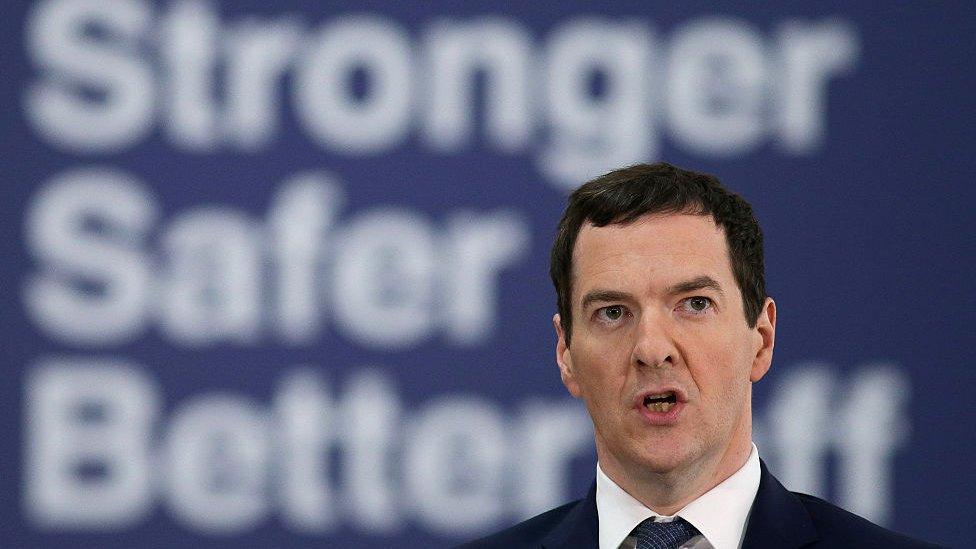
George Osborne will issue a statement early on Monday morning in a bid to calm markets after the surprise Brexit vote triggered turmoil on Friday.
The chancellor has not spoken publicly since the Leave campaign won Thursday's referendum.
His aim will be to provide reassurance about the UK's economic and financial stability, a Treasury official said.
Before that statement the pound fell further, down another 2.6% against the dollar at $1.34.
'No great rush'
Mr Osborne will make his comments at 07:00 at the Treasury before European markets open.
A Treasury spokesman said: "The chancellor will make a statement to provide reassurance about financial and economic stability in light of the referendum result and the actions that he and the rest of the government will be taking to protect the national interest over the coming period."
In other developments:
Potential Tory leadership contender Boris Johnson says the UK will continue to "intensify" co-operation with the EU following the country's vote to leave
Prime Minister David Cameron will chair the first meeting of the cabinet since the EU referendum result. It is not a political cabinet and Mr Johnson will not be there
The executive of the 1922 Committee of backbench Tory MPs is set to meet to draw up the timetable for the Tory leadership contest
German Chancellor Angela Merkel and French President Francois Hollande will hold talks later in Berlin to discuss the fallout of Brexit
Scotland's First Minister Nicola Sturgeon says Holyrood could try to block the UK's exit from the EU
The House of Commons petitions committee says it is investigating allegations of fraud in connection with a petition calling for a second EU referendum
Former Conservative leader and Brexit campaigner Iain Duncan Smith told the BBC the new prime minister should come from the Leave camp
The UK's credit rating outlook was lowered on Friday night by Moody's, one of the three main ratings agencies, and banks expect sterling to remain volatile following the dramatic slide in the pound on Friday.
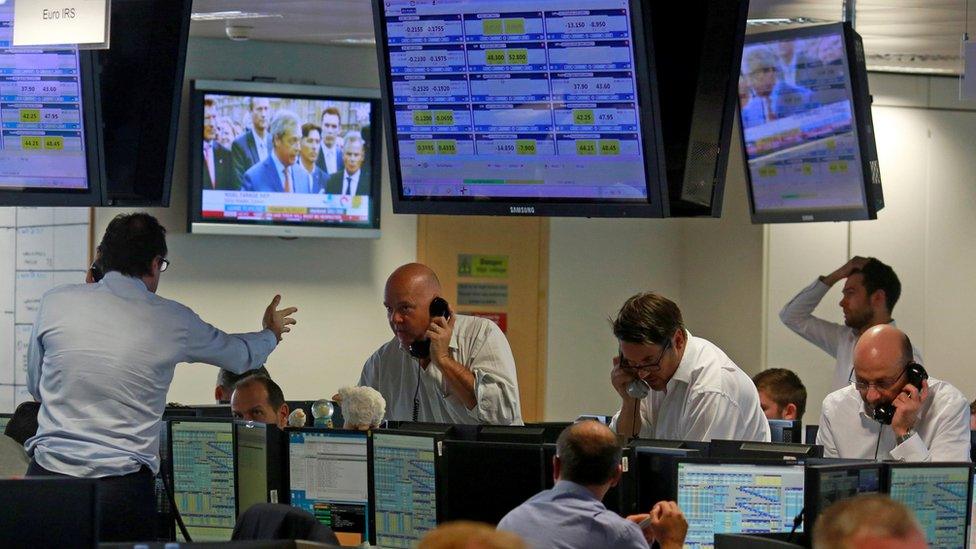
The chancellor hopes to reassure the markets after Friday's volatile trading
Economists expect the UK economy to fall into recession, which could force the Bank of England to cut interest rates later this year.
Governor Mark Carney said on Friday the Bank was ready to provide £250bn of additional funds to support financial markets.
Leave campaigner Boris Johnson - a contender to become Conservative party leader - said Mr Carney should remain in his job despite coming under fire from some Brexit campaigners for highlighting the risks of leaving the European Union.
Writing in Monday's Telegraph, external, Mr Johnson claimed the UK would continue to have access to the single market despite the vote, adding there was "no great rush" to leave the EU.
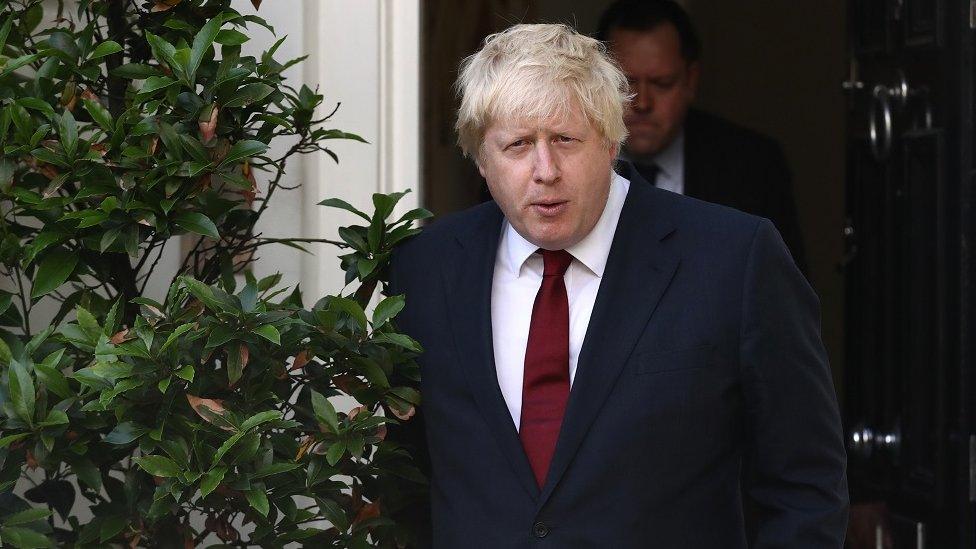
Boris Johnson said there was 'no great rush' to leave the European Union
Meanwhile, the chancellor will also need to clarify whether he intends to announce the emergency Budget that he insisted during the referendum campaign would be necessary in the event of Brexit.
Mr Osborne said that £30bn in tax rises and spending cuts would be necessary to compensate for the negative effects of voting to leave.
Labour leader Jeremy Corbyn - himself under pressure following a string of resignations from the shadow cabinet on Sunday - and pro-Leave Tory MPs have said they would try to block such a financial package if Mr Osborne tried to get it through the House of Commons.
The government is also being pressed by European leaders to set out a timeline for starting negotiations with the EU on the terms of Britain's departure.
David Cameron, who resigned as prime minister on Friday in the wake of the Leave vote, said his successor should invoke article 50 of the Lisbon Treaty to begin the formal withdrawal procedures after he leaves Downing Street in October.
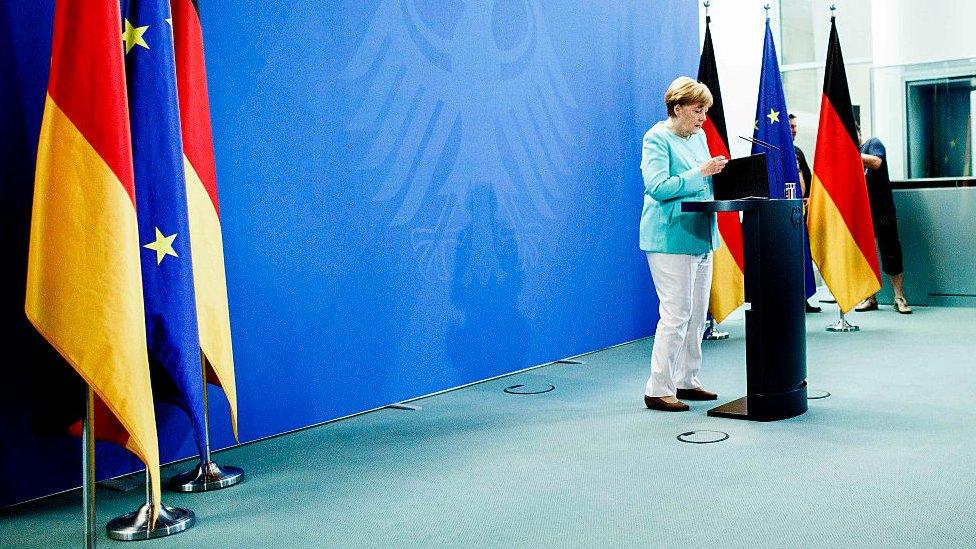
However, EU leaders want the process to begin as soon as possible to minimise uncertainty.
French President Francois Hollande and German Chancellor Angela Merkel spoke on Sunday night about how to respond to the UK's Brexit vote.
An aide to the French leader said both were in "full agreement on how to handle the situation" and the need to act quickly to "avoid uncertainties".
Mrs Merkel will hold talks in Berlin on Monday with Mr Hollande and Italian Prime Minister Matteo Renzi.
- Published27 June 2016
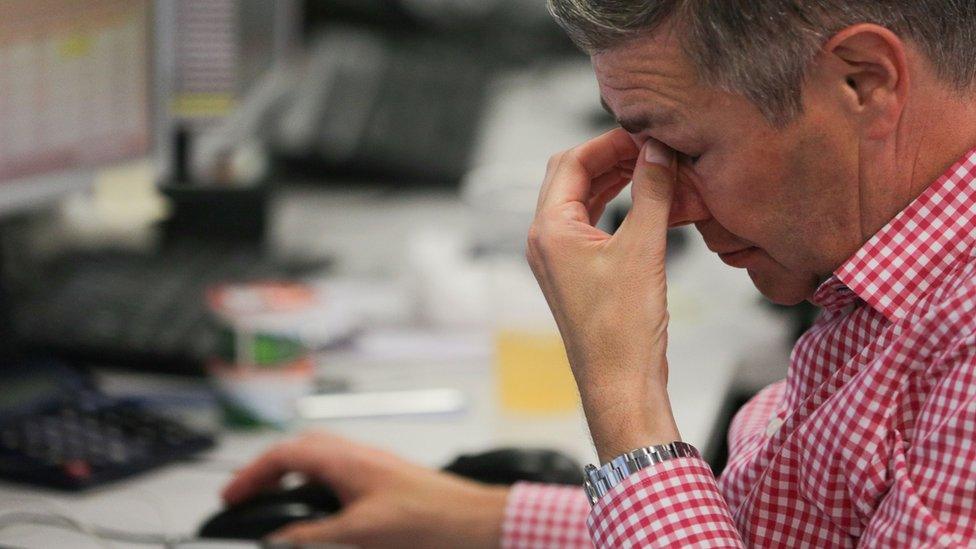
- Published27 June 2016
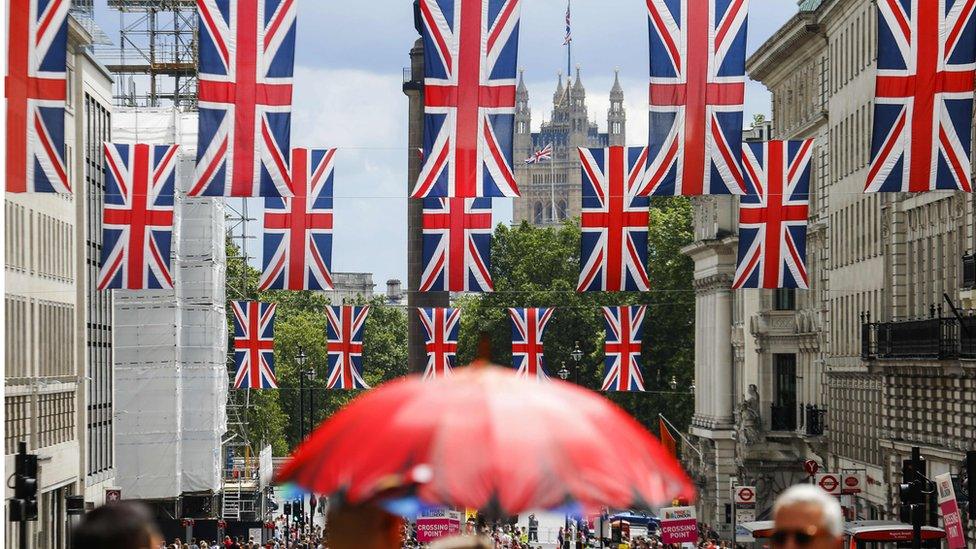
- Published27 June 2016
